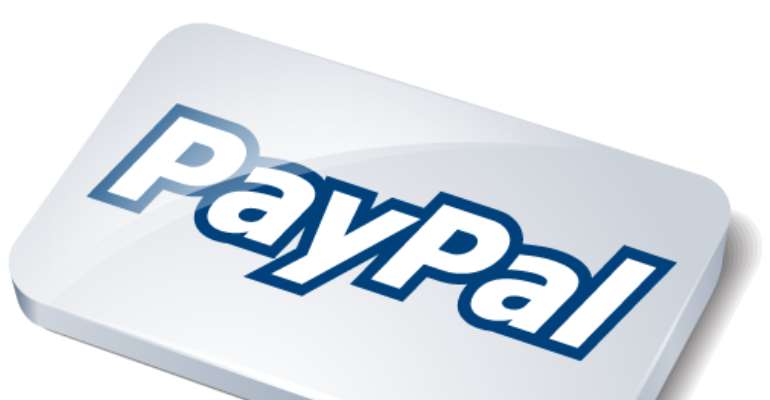Nigerians Demonstrate A Strong Appetite For Foreign Products—New Study On Online Cross-Border Purchases Reveals

Research shows that Nigerians purchase most of their international goods from the United Kingdom, North America and South Africa but are still concerned about safety of online payments as with local purchases.
A recent study conducted in Nigeria by Ipsos, a global market research company, on behalf of PayPal, showed that out of the approximately 50 million internet users in Nigeria, 65% already shop online and another 24% expect to do so in the future.
However, online shopping is not limited only to local purchases. 47% of current Nigerian online shoppers said that they have shopped from outside of Nigeria. And with 37% of online shoppers saying they haven’t yet shopped cross border but are looking to start shopping internationally in the future, this means that as much as 84% of online shoppers in Nigeria could become cross border shoppers.
“Advancement of technology is helping to open up commerce opportunities for everyone - across borders, anywhere, anytime and via any device” says Efi Dahan, Regional Director for Africa and Israel at PayPal. ““Our aim is to make it easier, more secure and more affordable for people to shop online than ever before.”
Where do Nigerians make their purchases from?
Europe and North America are the most popular regions for cross border purchases, with the United States being the most popular individual country from which to buy goods. 41% of Nigerian cross border shoppers have purchased goods from Europe, followed by 38% having purchased from North America and 30% from its African peer: South Africa.
Findings on Nigeria’s cross border purchasing patterns are similar to the global trend. In another study conducted by Ipsos** across 22 countries globally, the United States, Europe and China were the most popular destinations for cross border online purchases with 26% of global online shoppers purchasing from the States, followed by China, the UK and Germany with 18%, 17% and 16% respectively.
Barriers to cross-border shopping
Similar to local online purchases, security of online payments remains a key barrier to cross border shopping. 42% of online shoppers who do not shop across borders said this is a reason they do not currently make international purchases online.
“Online security matters. This is why PayPal provides a simpler, easier and more secure way to shop and pay on millions of websites around the world,” says PayPal’s Efi Dahan. ��The fact that PayPal does not share financial information with the seller when authorising a transaction reassures consumers that their financial details are more secure.”
Despite security concerns, 82% of Nigerian online shoppers who already shop cross border online mentioned they plan to spend the same or more making international purchases in 2015.
A Regional Comparison - South Africa, Kenya and Nigeria
Intra-African trade is significant with 36% of Nigerian cross border shoppers buying from elsewhere in Africa in the past 12 months. South Africa is the main destination with 30% of Nigerian cross border shoppers buying from the country in the past 12 months. It is followed by Kenya with 2%, Egypt with 1%, and the rest of the continent with 3%.
Interestingly, only 4% of South Africans have purchased online goods from other countries on the continent in the past 12 months.***
About PayPal
At PayPal (Nasdaq: PYPL), we put people at the center of everything we do. Founded in 1998, we continue to be at the forefront of the digital payments revolution, last year we processed 4 billion payments, of which 1 billion were made on mobile devices. PayPal gives people better ways to connect to their money and to each other, helping them safely access and move their money and offering a choice of how they would like to pay or be paid. With our 169 million active customer accounts, we have created an open and secure payments ecosystem that people and businesses choose to securely transact with each other online, in stores and on mobile devices. PayPal is a truly global payments platform that is available to people in 203 markets, allowing customers to get paid in more than 100 currencies, withdraw funds to their bank accounts in 57 currencies and hold balances in their PayPal accounts in 26 currencies. For more information on PayPal, visit about.paypal-corp.com . For PYPL financial information visit investor.paypal-corp.com .
* Ipsos-PayPal Africa Insights research conducted in Nigeria
Nigeria: On Behalf of PayPal, Ipsos interviewed a representative quota sample of 500 adults (aged 18 - 55) in Nigeria who have used a PC, laptop, mobile or tablet to access the internet in the past 6 months. Interviews were conducted face to face between 12 -24th November 2014.
** On Behalf of PayPal, Ipsos interviewed a representative quota sample of c.800 (17,519 in total) adults (aged 18 or over) who own and/or use an internet enabled device* in each of 22 countries (UK, France, Germany, Austria, Switzerland, Italy, Spain, Netherlands, Sweden, Norway, Denmark, Poland, Turkey, Russia, Israel, UAE, USA, Canada, Brazil, Mexico, China, Australia). Interviews were conducted online between 9th September and 3rd November 2014. Data was weighted to known incidence of online shoppers in all countries, and to demographic profile of internet users in 7 countries.
*** Ipsos-PayPal Africa Insights research conducted in South Africa
South Africa: On Behalf of PayPal, Ipsos interviewed a representative quota sample of 501 adults (aged 18 - 54) in South Africa who have used a PC, laptop, mobile or tablet to access the internet in the past 6 months. Interviews were conducted by telephone between 12 -21st November 2014.
